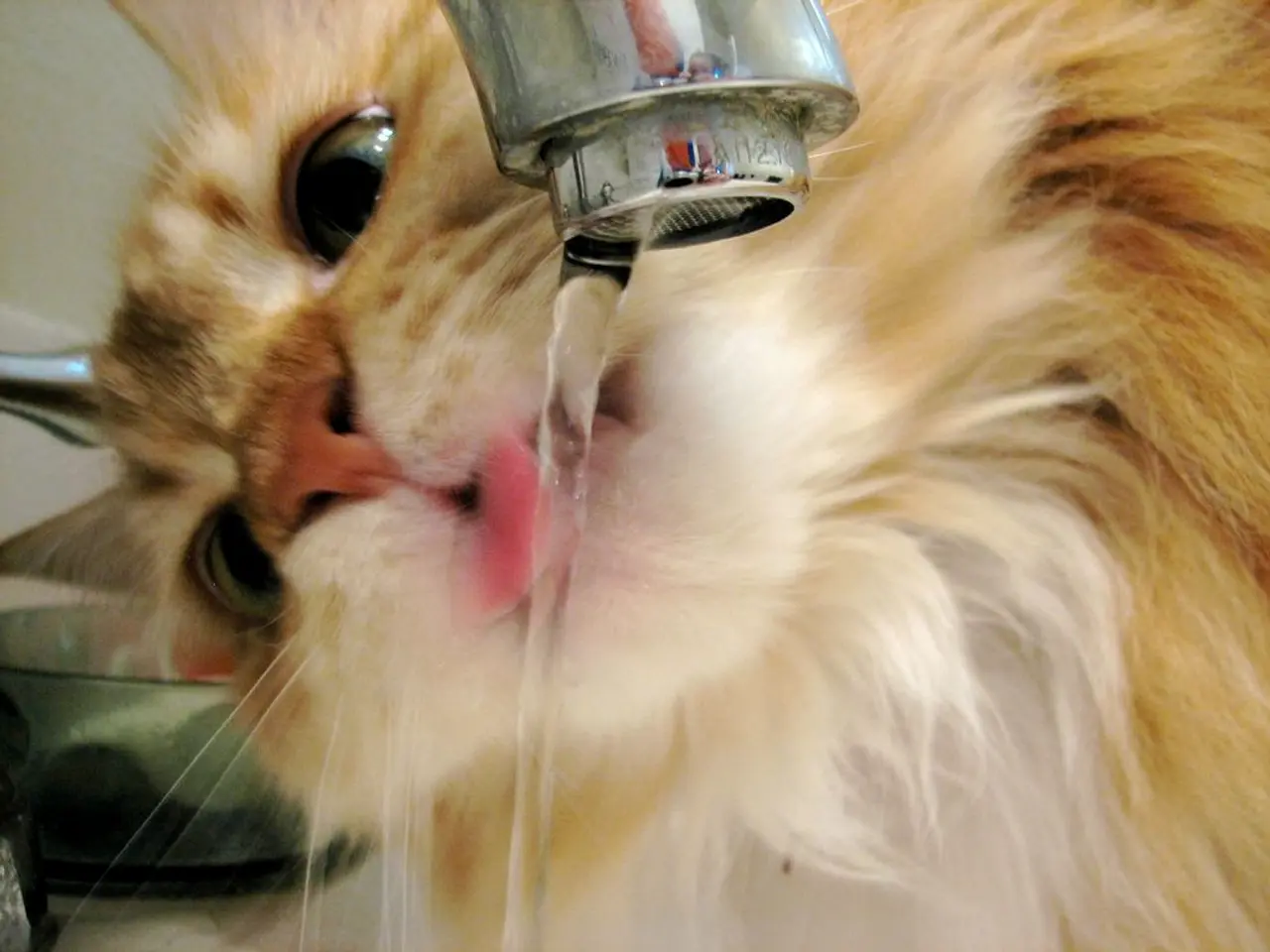Vomiting Clear Liquid in Cats: Guide for Action
Vomiting clear liquid in cats can be a cause for concern, as it often indicates bile or stomach acid in an empty stomach or other irritations. While occasional episodes may be benign, frequent or severe vomiting requires prompt veterinary attention to rule out serious conditions and to provide appropriate treatment.
Common Causes of Vomiting Clear Liquid
The most common causes of a cat vomiting clear liquid include an empty stomach (leading to bile reflux), eating or drinking too quickly, gastrointestinal irritation, ingestion of toxins or foreign bodies, and underlying health issues such as inflammatory bowel disease, metabolic disorders (e.g., kidney disease, hyperthyroidism), or intestinal obstruction.
Immediate Steps for Cat Owners
Upon observing a cat vomiting clear liquid, cat owners should:
- Monitor the cat's behavior and frequency of vomiting. Occasional vomiting with no other symptoms may not be serious, but frequent vomiting requires prompt attention.
- Check for signs of dehydration or distress. Continuous vomiting can quickly lead to dehydration, especially in young or older cats.
- Remove any potential toxins or harmful plants from the cat’s environment. For example, ingestion of plants like ZZ plant causes oral irritation and vomiting; in such cases, remove plant material from the cat’s mouth if safe, provide fresh water, and contact a veterinarian immediately.
- Avoid giving home remedies or human medications without veterinary advice.
- Contact a veterinarian promptly if vomiting is persistent, if there is blood in the vomit, behavioral changes, lethargy, or other worrying signs.
- Offer small amounts of water to keep the cat hydrated, but do not force if the cat is unwilling or vomiting continues.
Underlying Health Issues
Several health issues can cause a cat to vomit clear liquid. For instance, kidney disease may be indicated by symptoms like weight loss, excessive urination and thirst, dehydration, and decreased appetite. Inflammation of the pancreas can cause frequent vomiting, poor appetite, lethargy, diarrhea, and pain when picked up. Hyperthyroidism, a common senior cat health issue, can cause the cat to vomit clear liquid or clear foamy liquid, along with other symptoms like weight loss, increased activity, and diarrhea.
Cats with uncontrolled diabetes may vomit clear liquid and show signs such as weight loss and excessive drinking or urination. Signs that a cat needs to go to the emergency veterinarian include repeated vomiting with loss of appetite, severe vomiting and/or diarrhea, blood in the vomit or diarrhea, excessive thirst, lethargy or collapse, disorientation or seizures, jaundice, straining and vocalizing in the litter box with no urine or feces produced, abdominal pain, and dehydration.
Intestinal Blockages
A blockage in the stomach and/or intestines can occur if a cat eats something they shouldn't, such as a string or a piece of a toy. In such cases, immediate veterinary attention is necessary to prevent further complications.
Liver and Gallbladder Issues
Vomiting is a common sign of liver or gallbladder issues in cats, along with lethargy, appetite loss, excessive drinking and peeing, and diarrhea. With severe disease, cats may show signs of jaundice or disorientation.
In summary, while occasional episodes of a cat vomiting clear liquid may be benign, frequent or severe vomiting requires veterinary evaluation to rule out serious conditions and to provide appropriate treatment. It is essential for cat owners to monitor their pets' health closely and seek prompt veterinary attention when necessary.
- In the realm of health-and-wellness, frequent vomiting of clear liquid in cats can indicate various mental-health and physical issues, such as uncontrolled diabetes, inflammatory bowel disease, kidney disease, hyperthyroidism, or even intestinal obstruction. Science keenly examines these conditions, seeking effective treatments for each diagnosis.
- Mental health is closely tied to a cat's overall health, and persistent vomiting of clear liquid could signal underlying issues, like liver or gallbladder problems, which need immediate veterinary attention. Awareness and prompt action can help maintain a cat's health and well-being.




